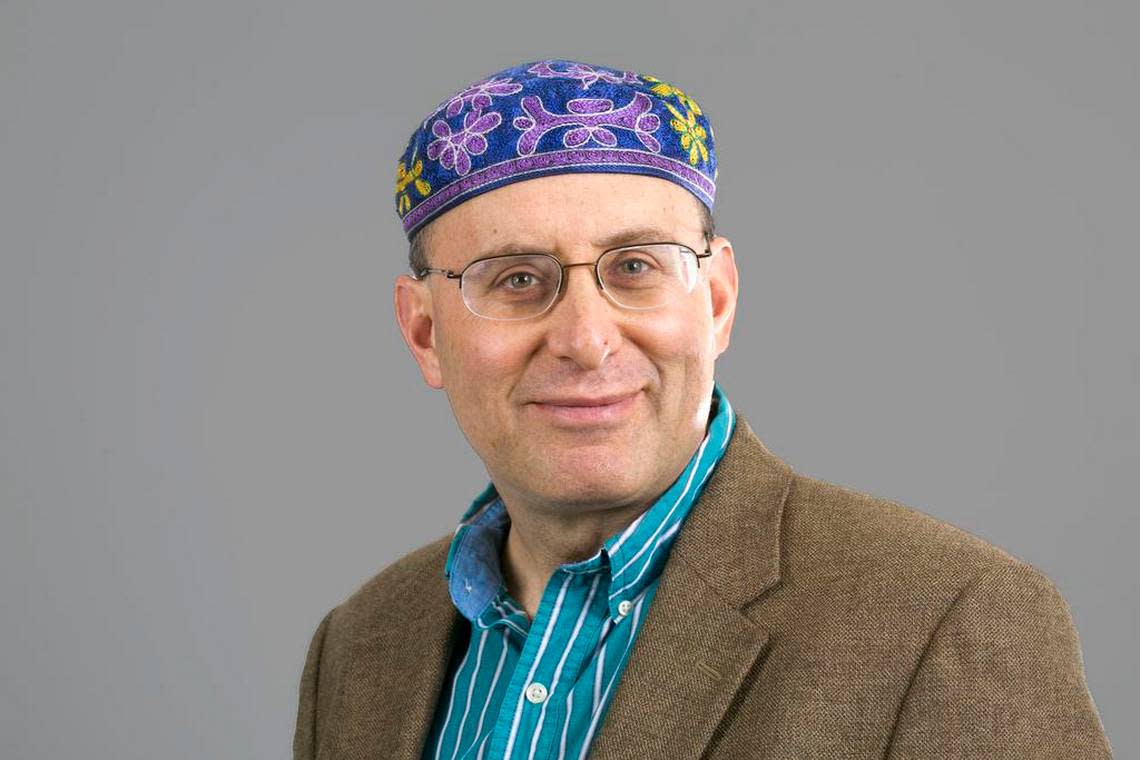Idaho faith: We are part of nature, not apart from it. Extend your love beyond humanity

- Oops!Something went wrong.Please try again later.
In his book “I and Thou,” Jewish theologian Martin Buber notes two very different ways of relating to the world around us.
Mostly we participate in what he calls “I-It” relationships, which are utilitarian, engaging others as means to advance our own agendas.
But at times — as Buber explains “when will and grace are joined” — we can connect with other people and, crucially, also members of the natural world, as peers, in genuinely reciprocal relationships that embody sharing rather than exploitation.
Buber calls these “I-Thou” encounters and famously describes one he experiences with a tree:
I consider a tree. I can classify it in a species and study it as a type in its structure and mode of life. In all this the tree remains my object, occupies space and time, and has its nature and constitution.
It can, however, also come about, if I have both will and grace, that in considering the tree I become bound up in relation to it ... relation is mutual.
This is a profound shift in perspective, and it changes almost everything. Indeed, I believe that the well-being of humanity, nature and the earth depend upon our capacity to move away from a materialistic view of the Creation, toward one of mutual respect. By our nature, human beings are most willing to sacrifice for people, places and creatures that we cherish. Only when love and mutuality undergird our relationship with the wider world will we be adequately motivated to preserve it.
The devastating effects of catastrophic climate change are inseparably tied to the consumerist philosophy that views nature as a toolbox for humanity’s benefit. This approach is destructive, archaic and patently untrue. New discoveries constantly confirm that everything is connected. The flap of a butterfly’s wings in Brazil triggers a tornado in Texas. Forests are conscious, living entities. Trees talk to one another — and if we are willing to listen, they speak to us as well.
For far too long, we have thought ourselves to be apart from nature, rather than a part of it. This truth recalls a Jewish folktale in which two people fight over a piece of land. Each claims ownership, and each bolsters the claim with apparent proof. After arguing for a long time, they agree to resolve their conflict by putting the case before a rabbi.
The rabbi listens carefully, but she cannot reach a decision. Both parties seem to be right. After a long and thoughtful pause, the rabbi says, “Since I cannot decide to whom this land belongs, let’s ask the land.” She bends down, puts an ear to the ground, and after a few moments, stands up and decrees, “My friends, the land says it belongs to neither of you but that you belong to it.”
We and the rest of the Creation are bound together in a magnificent web of inter-being that supports and sustains us. When we willfully deny that reality for profit and petty political purposes, we are not only hurting ourselves, we are insulting our Creator. Torah demands that we do better.
Dan Fink is the rabbi for the Ahavath Beth Israel congregation. The Idaho Statesman’s weekly faith column features a rotation of writers from many different faiths and perspectives.

